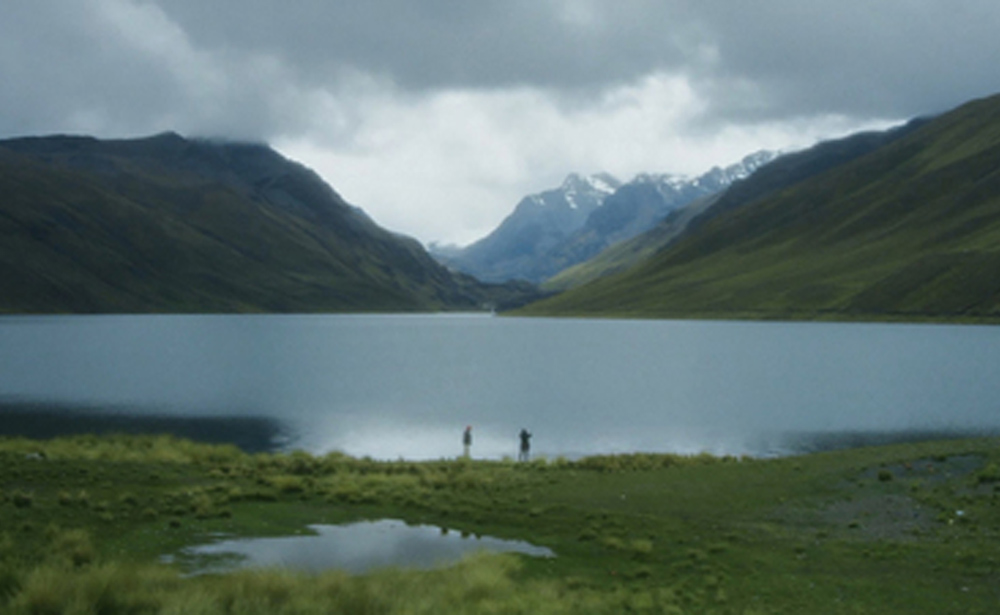For Western audiences, the image that opens “A Taste of Sky” may be a shocking one, with a young Bolivian man named Kenzo Hirose patrolling the river with a shotgun, ultimately taking aim at the water. A harsh cut accompanying the subsequent blast reveals an alligator has been killed to be served up at a fancy restaurant, sliced thin and elegantly plated. As jarring as this unglamorous bit of farm to table business may be, the real surprise resides in the plate being dished out to locals in La Paz, a place not known for its find dining, though that seems to be changing.
Although vegans might not find “A Taste of Sky” all that inspiring, director Michael Lei finds a heartening tale in Bolivia, where Claus Meyer aims to replicate the success he had with his landmark restaurant Noma in Denmark, though the rewards aren’t meant to enrich him. After Meyer revolutionized his native Nordic cuisine to the point where gourmands from around the world would book travel to eat there, Lei joins the chef as he opens Gustu, meant to be both a destination for international chow hounds and an incubator for local chefs with a culinary school attached to the restaurant. Kenzo is among the students Lei follows between the kitchen and home, a distance can’t be quantified too many other ways than cinematically.
Naturally, “A Taste of Sky” will indulge in the gratuitous slomo shots of delectable dishes being prepared and rare ingredients being procured a la “Chef’s Table,” but the camera serves a greater function as Lei hones in on what different generations need to pass on to each other and let go in order to thrive. Interviews with Meyer are conducted by his prepubescent daughter in a presentation that seems curious at first but grows in resonance as what he tells her about his upbringing in a provincial part of Denmark offers parallels to the journey Kenzo and others are on, learning to trust their instincts even when it goes against the low expectations that have become a part of the culture as part of unfair economic circumstances, and careful to explain what white privilege is. The analogy is indirect but effective as Lei turns the camera towards the burgeoning chefs who are often tangled up in familial responsibilities to keep their entire clans afloat while carving out the time to chase a career that could break the cycle of poverty.
Although the plethora of food docs in the wake of “Jiro Dreams of Sushi” have rendered the presentation of food as a form of personal expression a bit tired, there is a real freshness to seeing that idea extended to an entire nation, seeing local ingredients such as palmito dressed up to the standards of a Michelin-starred restaurant to suggest, as Meyer maintains, that the outlook for the country can start at the dinner table. Lei brings in a trio of established Bolivian chefs to offer some gentle criticism of Meyer’s plans, but the film largely offers a sense of escape – not only for foreign audiences who can take in lush views of the Andes and witness the all the natural beauty that the country has to offer in its food and the people who make it, but also for the chefs who can let their imaginations run wild, seizing upon opportunities they never thought were possible before.
“A Taste of Sky” will screen at the Tribeca Film Festival on April 27th at 6:15 pm and April 28th at noon at the Regal Cinemas Battery Park and May 5th at 11:30 am at the Village East Cinema.




